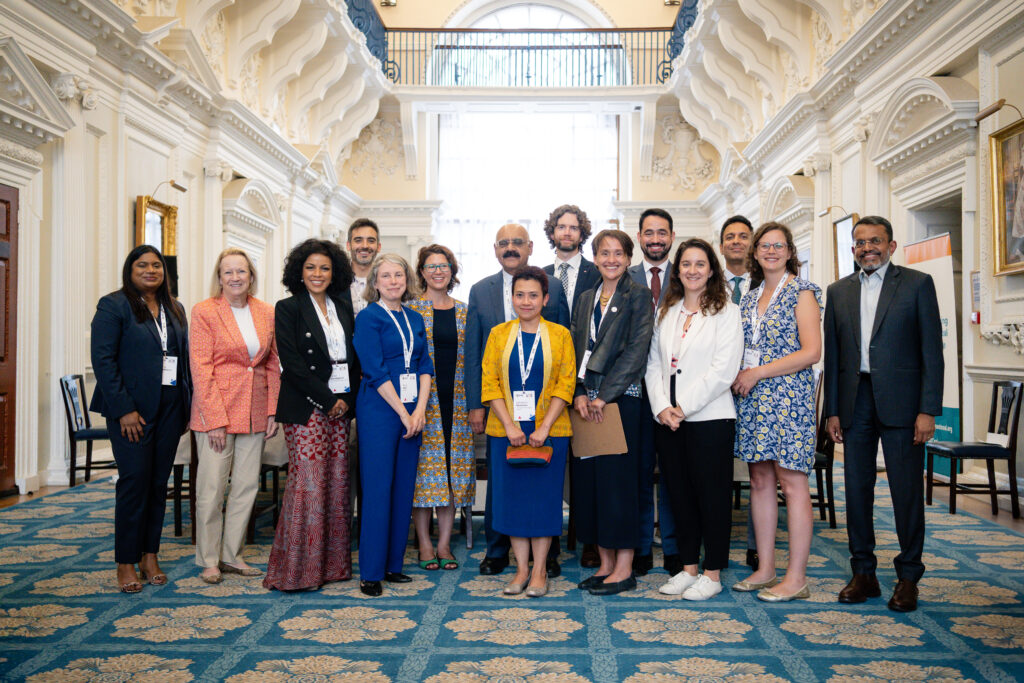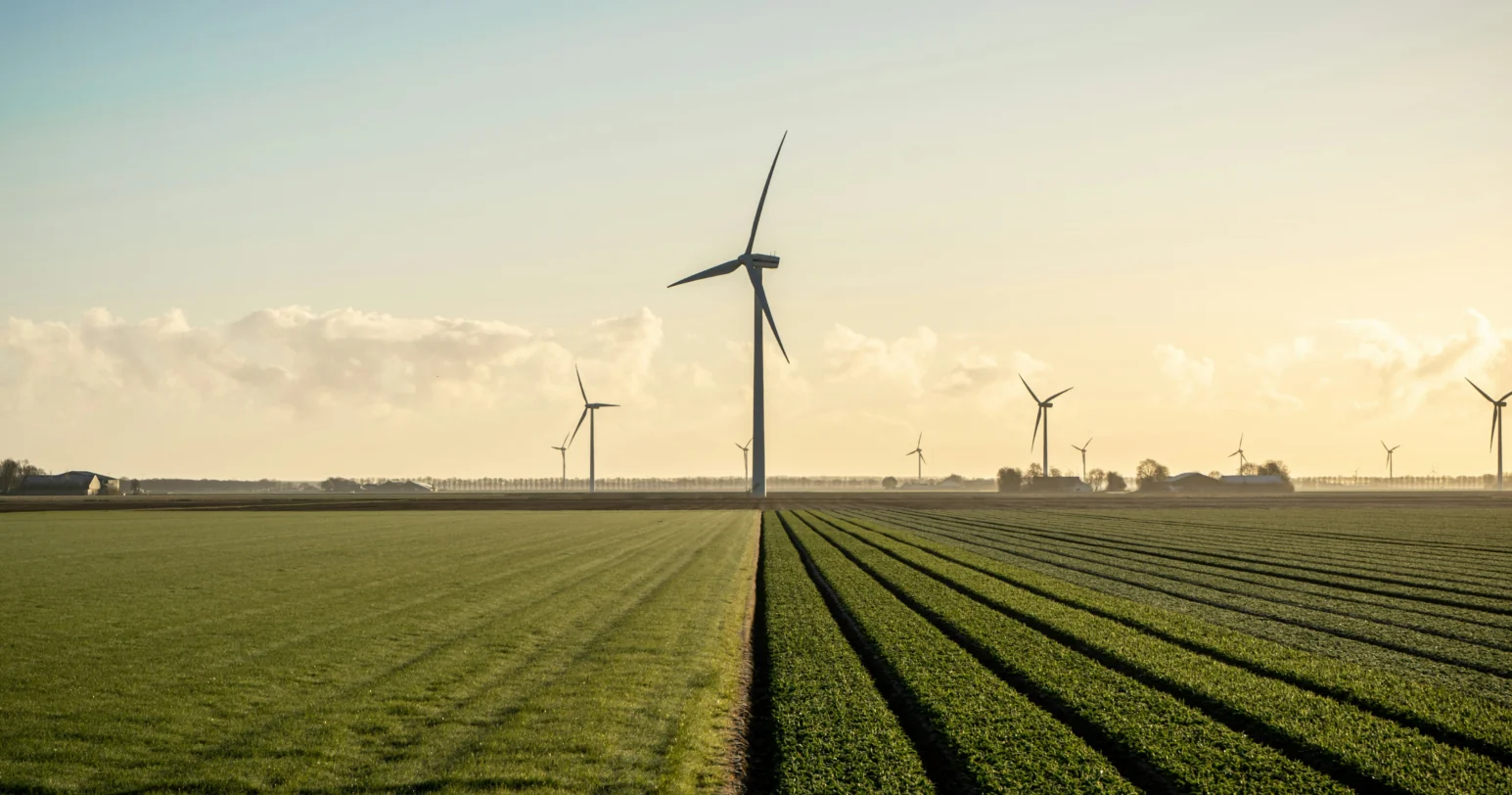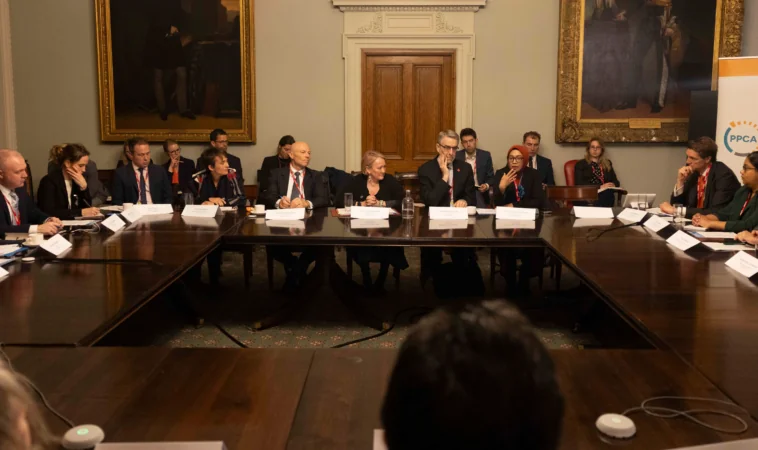
The PPCA’s Summary of London Climate Action Week 2025
London Climate Action Week (LCAW) last month was once again a key opportunity for governments and businesses to come together to advance the global phase-out of coal while ensuring energy security and economic growth. The Powering Past Coal Alliance (PPCA) convened two high-level LCAW events to do just that: a closed-door roundtable “Financing a Coal-to-Clean Transition” and a public event “The Coal-to-Clean Transition: Progress and opportunity”.
The discussions highlighted both progress and persistent challenges – particularly for emerging economies—and identified actionable solutions needed to accelerate the global coal-to-clean transition. Participants particularly called on countries to speed up the early retirement of coal power plants and commit to No New Coal in their new Nationally Determined Contributions (NDCs) due before November’s UN Climate Summit (COP30). Read on to find out what was discussed.
Progress in the OECD reveals the huge benefits of coal-to-clean transitions
Our LCAW events showcased several countries making exemplary progress in their coal phase-out efforts. PPCA Co-Chair and UK Minister Kerry McCarthy spoke about the UK’s historic phase-out of coal last year, becoming the first G7 nation to do so.
Diego Pardow, Chile’s Energy Minister outlined how Chile’s detailed coal transition plans helped to foster investments in transmission infrastructure, energy storage and green hydrogen. This planning has, in 15-years, led to 70% of the nation’s energy now coming from renewables. Dr Sinead Walsh, Climate Director for the Irish Department of Foreign Affairs spoke on how Ireland’s last coal plant, which closed last month, is being turned into a renewables’ hub for wind and green hydrogen. Dr Walsh covered how Irish coal phase out was achieved in a way that ensured energy security throughout the process, with the aim of expanding renewables capacity for the long term. The Italian G7 and G20 Negotiator for the Ministery of Environment, Alberto Pela also confirmed that Italy was on track to phase out coal on the Italian mainland this year, having reduced the mainland’s coal power usage from 15% to 0% in 10 years.
The efforts of the above countries have been part of a broader trend in the OECD of declining coal power use. Since 2015, when the Paris Agreement was signed, Belgium, Austria, Sweden, Portugal, Slovakia, the UK and Ireland have phased out coal completely while Finland has brought its coal usage to below 1% for the first time. In the OECD as a whole, coal generation has halved since 2007, with one third of countries being coal free already and three-quarters set to eliminate coal by 2030.
The next OECD country set to achieve a coal-free power system is Spain, whose story represents an inspiring example on the benefits of a coal-to-clean transition. Gonzalo Sáenz de Miera the Director of Climate Change at Iberdrola, a Spanish electric utility company, explained how when transitioning from coal to clean power Spain “turned a challenge into an opportunity”. Through a just transition institute that collaborated with local trade unions, businesses and communities Spain has managed to help former coal regions shift to green industries. Sáenz de Miera said: “For every job you lose in the brown [fossil] economy, you gain two in the green economy…This is the global average, in Spain it’s a lot more”.

Challenges of coal phase-out can be addressed by emerging solutions
For coal dependant developing economies, rising energy demand and young coal fleet makes coal-to-clean transitions all the more challenging. Shah Jehan Mirza, Managing Director of Pakistan’s Private Power Infrastructure Board, noted that achieving climate goals must be balanced with mitigating the “social and economic impacts’. This is why support from international partners is crucial in order to help accelerate coal-to-clean transitions in developing economies.
To retire coal plants early, participants of our LCAW events discussed the role of the international community in developing a pipeline of viable coal retirement projects and increasing the amount of available finance through innovate mechanisms such as blended public-private finance and transition credits. On developing a pipeline of projects, France’s Climate Ambassador Benoit Faraco outlined the work of the Coal Transition Commission (CTC) to identify feasible retirement projects with research set to be published later this year. On ramping up finance, Singaporean Climate Ambassador Ravi Menon highlighted the importance of public and private finance working together to meet the current funding gap for coal phase-out in developing economies. One example of an effective blended finance mechanism can be found in Chile where one of the first ‘coal transition mechanisms’ (CTMs) has been deployed to retire the Tocopilla coal plant. Additionally, Menon noted that transition credits were an additional tool to address the current funding gap for coal retirement projects and welcomed the work that had been done to develop methodologies that set out robust guardrails to help guarantee their integrity.
For energy security demands to be met whilst ensuring a just transition, speakers highlighted the importance of developing detailed energy transition and just transition plans. These plans should be early, transparent, and inclusive: engaging all relevant ministries in the government and stakeholders from industry, communities, workers, and civil society. As Anand Rajagopal, head of Sustainability Research at Phoenix Group Asset Management said, for his firm to invest in countries “transition plans are of utmost importance”.
To attract investments in clean energy, event participants discussed the importance of clear government signals, including commitments to No New Coal. A commitment to No New Coal and coal phase-out is one of the clearest signals developing country governments can send to attract the necessary transition finance. As Andrew Prag, Managing Director of Policy for We Mean Business noted “One thing we hear from businesses above anything else is predictability from governments”.
How will the PPCA take this work forward?
Speakers acknowledged that while much of the world continues to move away from coal power, the pace of shift remains far too slow to meet the Paris Agreement goal to limit temperature rise to 1.5°C. They identified priority next steps that need to be taken in the lead up to COP30 to strengthen these efforts:
- Developed country governments and financial institutions need to increase the amount of, and access to, both public and private finance for coal retirement, ensure the lessons learnt from current projects are shared and a pipeline of viable projects is significantly scaled up.
- To increase investor confidence and thus attract the necessary financing, emerging economy governments need to commit to No New Coal in their new Nationally Determined Contributions (NDCs) due to be submitted in the lead up to COP30.
Whilst there is much to be done ahead of COP30, it is clear that now is the time to seize the many opportunities of a coal to clean transition. The PPCA looks forward to working with its members and partners in the coming months to help coal dependant countries realise these benefits and set out on the path of decarbonisation.




